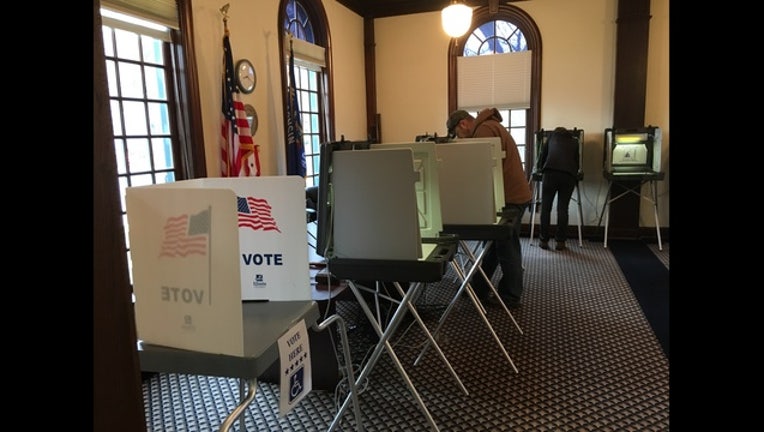Gov. Dayton signs bill to create presidential primary in MN

photo by Bill Keller / Fox 9
ST. PAUL, Minn. (KMSP) - Minnesota’s long tradition of presidential caucuses has come to an end, perhaps a victim of its own success.
Gov. Mark Dayton signed a bill Sunday creating a presidential primary in Minnesota beginning with the 2020 election year.
The calls to scrap the caucus system came rang out within hours after the Super Tuesday caucusing began on March 1st. Both the DFL and Minnesota Republican Party saw record turnout in churches, schools and community buildings across the state.
In many precincts there wasn’t enough parking and precinct captains ran out of ballots with attendees standing in line well past the 8 p.m. deadline trying to cast their presidential preference vote. Many voters simply left in frustration.
The very next day, lawmakers vowed to introduce legislation to establish a presidential primary.
DFL Chairman Ken Martin in a statement on Saturday said the bill will ensure greater participation for Minnesota voters.
“The Presidential Primary will make the process inviting, accessible, fair, and open to all eligible voters in Minnesota,” Martin said.
However, a key part of the legislation requires presidential primary participants to declare their party identification. The voter must sign a form stating, “I am in general agreement with the principles of the party for whose candidate I intend to vote.” That information along with name, address, and year of birth of the voter will be collected by county clerks as part of public voter roll.
Another important part of the legislation still allows the political parties to hold precinct caucuses for local offices and party building.
Secretary of State Steve Simon, the state’s chief elections officer, said the bill will make it easier for people to vote in the presidential selection process.
“Instead of having just one hour on one night to vote, Minnesotans will now have access to many of the benefits they’ve come to expect from our regular election process, including no-excuses absentee voting, same-day registration, and opportunities for those serving overseas,” Simon said.

